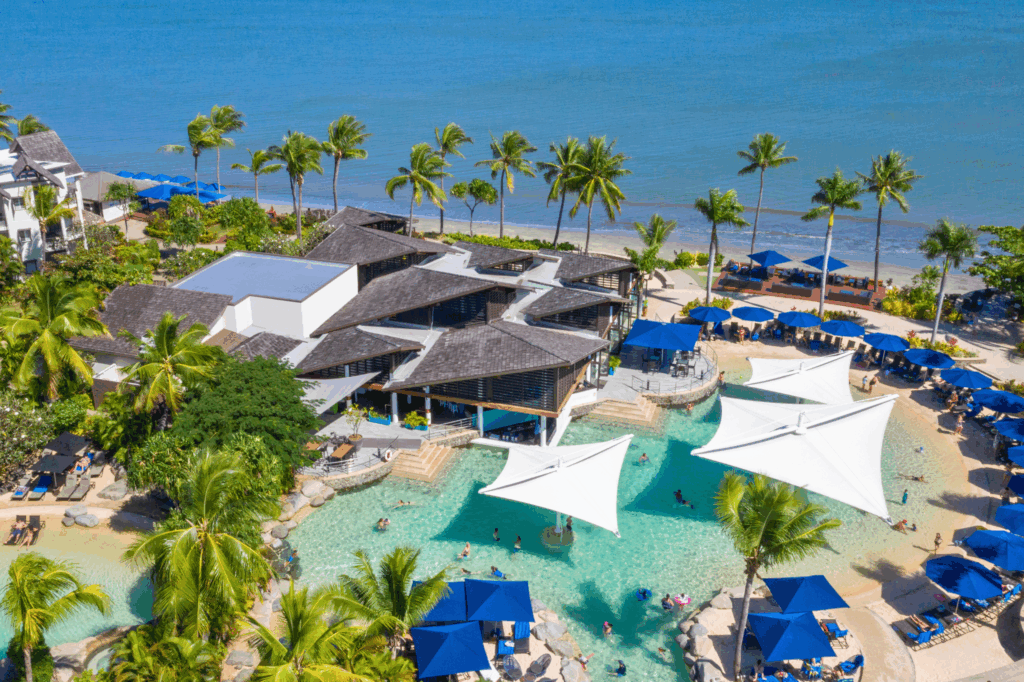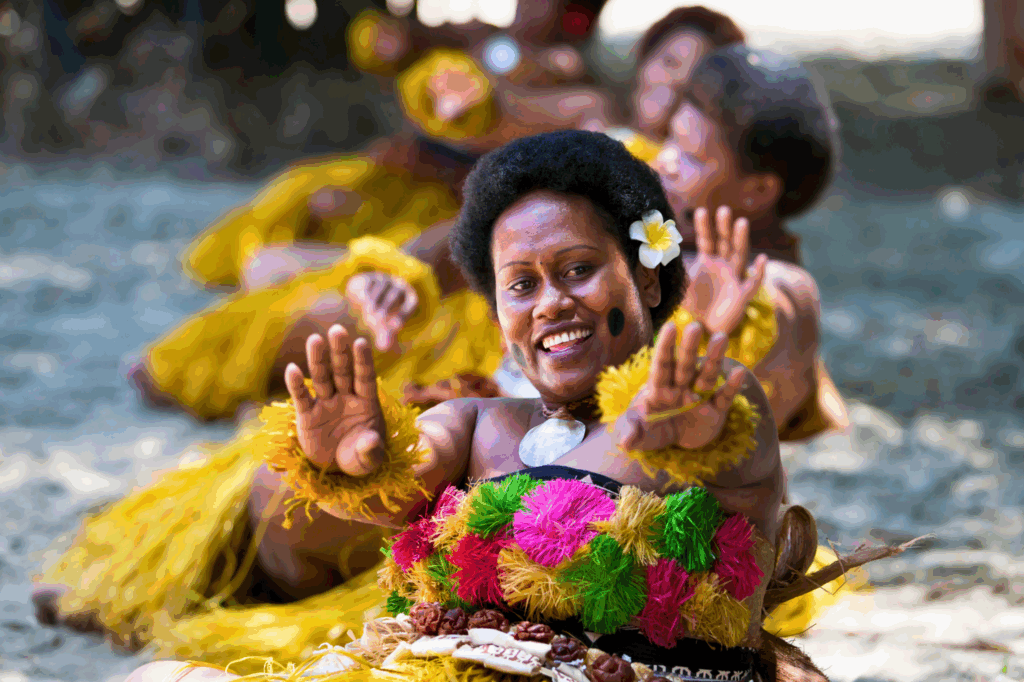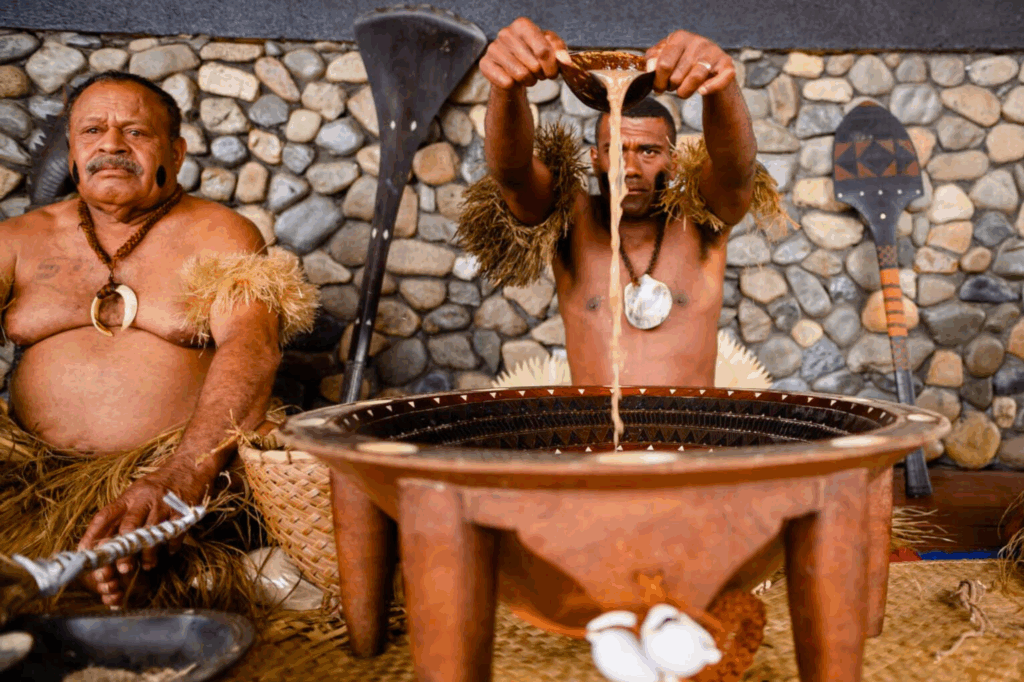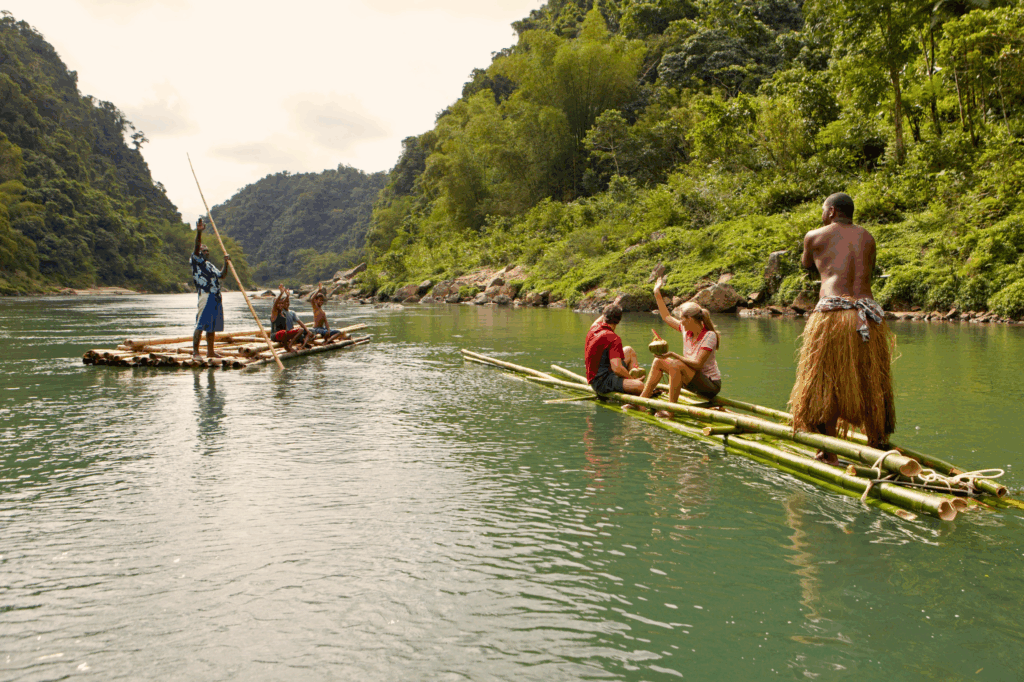Fiji Travel Guide: What to Know Before You Go
If you looked up “dream tropical holiday” in the dictionary, a map of Fiji would be there . Picture swaying palm trees, soft coral sand between your toes, and the kind of sunsets that stop you in your tracks. But beyond the pristine beaches and turquoise lagoons lies a deeply rooted culture, a slower rhythm of life, and a few quirks every traveller should know before departing.
Whether you’re chasing adventure, planning a romantic escape, or just looking for solid Fiji holiday deals, this guide will help you arrive informed, prepared, and ready to embrace all that the islands have to offer.

Visas, Money & Documentation
If you’re an Australian passport holder, there’s no need to organise a visa in advance for stays up to 120 days. Just ensure your passport is valid for at least six months beyond your return date back into Australia and that you have proof of an onward or return ticket. For more details, see our guide to Visas and passports.
Fiji uses the Fijian Dollar (FJD). While major hotels, resorts and tour operators accept credit cards, having some cash on hand is handy for local markets, buses, and smaller shops, especially if you’re heading to the outer islands. ATMs are widely available in tourist hubs and major towns but become a bit harder to find the further out you go.
Cards may incur a small surcharge, and not all places accept digital payments, so it’s a good idea to travel with both cash and cards. Currency exchange is available at the airport, but you’ll usually find better rates at local banks or exchange bureaus in town.
If you’re planning on renting a vehicle, ensure you have a valid physical driver’s license with you.
When to Go
For the best time to visit Fiji, we’d say plan your trip for between June and September to enjoy nice, warm weather; the slight drawback being that this is peak season as it coincides with some school holidays. May or October is a good compromise, if you’d like to avoid the higher volume of tourists and get better prices.
The wet season November to April is also a good time to consider, surprisingly. Despite the weather risk, you’ll still enjoy pleasant days for the most part.
What to Pack
Packing for a Fiji holiday requires a bit more thought than the usual swimmers and sunnies. Here’s what should be on every traveller’s list:
- Reef-safe sunscreen: Many of Fiji’s reefs are protected, and using chemical-free sunscreen helps preserve these stunning ecosystems.
- Insect repellent: Mosquitoes are common, especially during the wet season. Look for repellent with DEET or picaridin.
- Light, breathable clothing: Loose cotton or linen clothing is ideal for the hot, humid climate.
- Water shoes: Great for coral beaches or rocky shorelines.
- Modest attire: For village visits or church services, covered shoulders and knees show respect.
- Snorkel gear: Many resorts provide it, but having your own ensures a better fit and availability.
- A sarong or sulu: Easy to pack and incredibly versatile.

Health & Safety
Fiji is a relatively safe destination, but a little preparation can prevent any avoidable incidents. The warm, tropical climate and island lifestyle bring with them a few unique health considerations:
- Mosquito-borne illnesses like dengue fever do occur, so daily use of insect repellent is important.
- Travel insurance is a necessity. Medical services on the outer islands are limited and in general, aren’t as well equipped as what they are in Australia. In an emergency, an evacuation to Australia may be needed and can be expensive. Insurance will help with the potential costs.
- It is recommended to drink bottled water rather than tap water in Fiji.
- Sun safety should be a priority, being so close to the equator. Wear a hat, sunglasses, and re-apply sunscreen frequently.
- Streets are often not lit efficiently and consistently, and roads are often not of the highest quality. Exercise caution when driving, even over relatively short distances.
For more detailed health recommendations and travel tips, see our Health and Safety guide.
Staying Connected: Internet, SIM Cards & Wi-Fi
Wi-Fi is available at most hotels and resorts, but speeds may not match what you’re used to – especially on the islands, and charges may also apply. If staying connected is a priority, purchase a local SIM card, the main providers on the islands being Vodafone or Digicel, the latter having a convenient branch at Nadi Airport and a few more in major towns. These providers offer prepaid data plans that are affordable and reliable for staying in touch or navigating with map applications.
Mobile coverage is solid on the main islands, but patchy on more remote locations. Many travellers choose to let go and unplug, a great way to sink into that famed island pace.
Respecting The Local Culture & Communication
One of the best things about visiting Fiji, beyond the palm trees and gorgeous waters, is the warmth and hospitality of the people. Fijians are known for their friendliness, and chances are, you’ll be greeted with a smile everywhere you go. There are so many things to do in Fiji, especially in smaller communities, but like any destination, before diving into everything the islands’ have to offer, there are customs and traditions that are deeply rooted in the local culture and history which should be accounted for. Being aware of them shows respect and helps you connect more meaningfully with the people you meet.
Dressing Modestly
While resorts are super relaxed, things are more conservative in traditional Fijian villages. If you’re planning a village visit, cover your shoulders and knees out of respect. For women, a sulu (wrap skirt) is often worn and many villages will even offer one for you to borrow. For men, longer shorts or a sulu are also appreciated.
Respecting Homes & Community Spaces
Fijian villages are tight-knit communities with strong traditions. Always ask for permission (and remove your shoes!) before entering someone’s home. When visiting a village, visitors are often welcomed by an elder in a small ceremony where you present a gift. typically kava root. No need to be intimidated, your guide will usually help arrange this if you’re on a tour.
Speaking of which, kava is at the heart of Fijian social life. Made from the ground root of the yaqona plant, this mildly sedative drink is served in a bilo (a coconut shell bowl) and shared during ceremonies, gatherings and casual get-togethers.
The act of drinking kava is deeply ceremonial. Guests are welcomed into the circle, seated around a tanoa (wooden mixing bowl), and offered their share. Clap once before drinking (all in one go if you can), and clap again when finished. Say “Bula!” as a sign of appreciation.
After a while, a tingling sensation in the lips and a deep sense of calm set in. Kava is a symbol of unity. Respect the ritual, stay open-minded, and you’ll likely be invited to join again.

Hospitality is a cornerstone of Fijian life, and if you’re invited to drink kava or share a meal, you should absolutely accept the invitation and make an effort to try a bit of everything being offered. Avoid touching food with your left hand, especially in more traditional settings. The right hand is considered clean for eating and offering food.
Lastly, but still extremely important, avoid touching people’s heads, especially children, it’s quite disrespectful as the head is considered a sacred part of the body.
Relax and Slip Into “Fiji Time”
Things move slower here. Meals may take longer to be prepared, tours don’t always run on an exact schedule, and the concept of punctuality is, well, a bit more subjective.
Rather than fighting it, lean into it. The relaxed rhythm is part of the charm of the islands and is a big reason so many travellers return year after year. Allow extra time for activities and keep your schedule flexible, you’ll appreciate the shift from your routine.

Language & Communication
Fijians are bilingual, speaking both English and Fijian (plus Hindi in many communities). However, don’t be surprised if directions are vague. If someone tells you something is “that side,” they may mean anything from around the corner to several kilometres away. This ambiguity is cultural; the Fijian language has fewer words than English, and non-verbal communication plays a big role.
A raised eyebrow, for instance, can mean “yes,” while a double eyebrow raise might mean something else entirely. Don’t stress, a friendly attitude and open curiosity are usually enough to navigate any confusion.
Pronunciation Tips & Common Words & Phrases
Place names and common words are often pronounced differently than they look. For example:
- “B,” has a silent “M” before it. Example: Toberua Island is pronounced “Tomberua.”
- “C” is actually pronounced like “th.” So instead of Mamanuca Islands, you’d say “Mamanutha.”
- The letter “D” sounds like there’s a sneaky “N” in front of it. So the town Nadi is actually pronounced “Nandi.”
- “G” also has an unspoken “N”. For example, Sigatoka is pronounced “Singatoka.”
This table contains some common words and phrases and their pronunciation. It would be worth familiarizing yourself with some of them before your trip:
| ENGLISH | FIJIAN | PRONUNCIATION |
| Hello | Bula | “boo-lah” |
| Goodbye | Moce | “mo-theh” |
| Please | Kerekere | “kerry-kerry” |
| Thank you | Vinaka | “vee-nah-kah” |
| Yes | Io | “eeh-oh” |
| No | Sega | “seng-ah” |
| Excuse me | Tulou | “too-low” |
| How are you? | Vacava tiko? | “Va-tha-va tee-koh” |
| Where is…? | I vei na…? | “ee-vey-nah” |
| Eat | Kana | “Kar-na” (think the “a” from “father” |
| Drink | Gunu | “ngoo-noo” |
If you’re ever confused or unsure of yourself, don’t be afraid to ask locals for some help, it’s a sign of respect and interest in the culture.
Religion and Rugby
Fiji is a deeply religious nation, with a Christian majority, as well as a notable presence of Hinduism and Islam.
On Sundays, almost everything stops. Shops close, buses stop running in some areas, and the entire Christian community dresses in their best to attend church. Visitors are welcome at most services. You can expect soulful singing, heartfelt sermons, and sitting on woven mats with the congregation.
Rugby is also one of Fiji’s (unofficial) religions. If there’s a big game on, expect the streets to empty, businesses to pause, and all eyes on the screen. And if the Flying Fijians win? Cue the dancing, cheering, car horns and extended celebrations.

Fiji Beyond the Resorts
Finding the best place to stay in Fiji can be a daunting task as you’ll be spoiled for choice. While many travellers flock to Denarau or stay within the walls of luxury resorts, those who venture further are rewarded with authentic, unforgettable experiences.
- Levuka, on Ovalau Island, is a UNESCO-listed former capital with colonial charm and strong community ties.
- Taveuni, known as the Garden Island, is a paradise for hikers and nature lovers.
- The Coral Coast offers lush landscapes, small villages, and family-run guesthouses.
- The Mamanuca and Yasawa Islands are perfect for island hopping, snorkelling, and diving.
- Kadavu and the Lau Islands promise raw beauty, exceptional diving, and immersive cultural encounters.
Plan Your Happier Holiday in Fiji
You now have all the essential knowledge needed for a rewarding and respectful trip, from understanding the warmth of the local culture and the rhythm of ‘Fiji Time’ to the practicalities of visas, currency, and what to pack. It’s this beautiful combination of rich natural beauty and profound, genuine hospitality that keeps Fiji a timeless favourite for Aussie travellers.
At Hoot Holidays, we use our 40 years of expertise to craft all-inclusive Fiji packages that cover absolutely everything – from return flights and a personal airport welcome to transfers, accommodation, meals, and those extra-special touches like massages and day tours. With everything taken care of upfront, you get the absolute best value and the priceless peace of mind that comes from knowing all you have to do is relax. We’re here to deliver a happier holiday for you.

